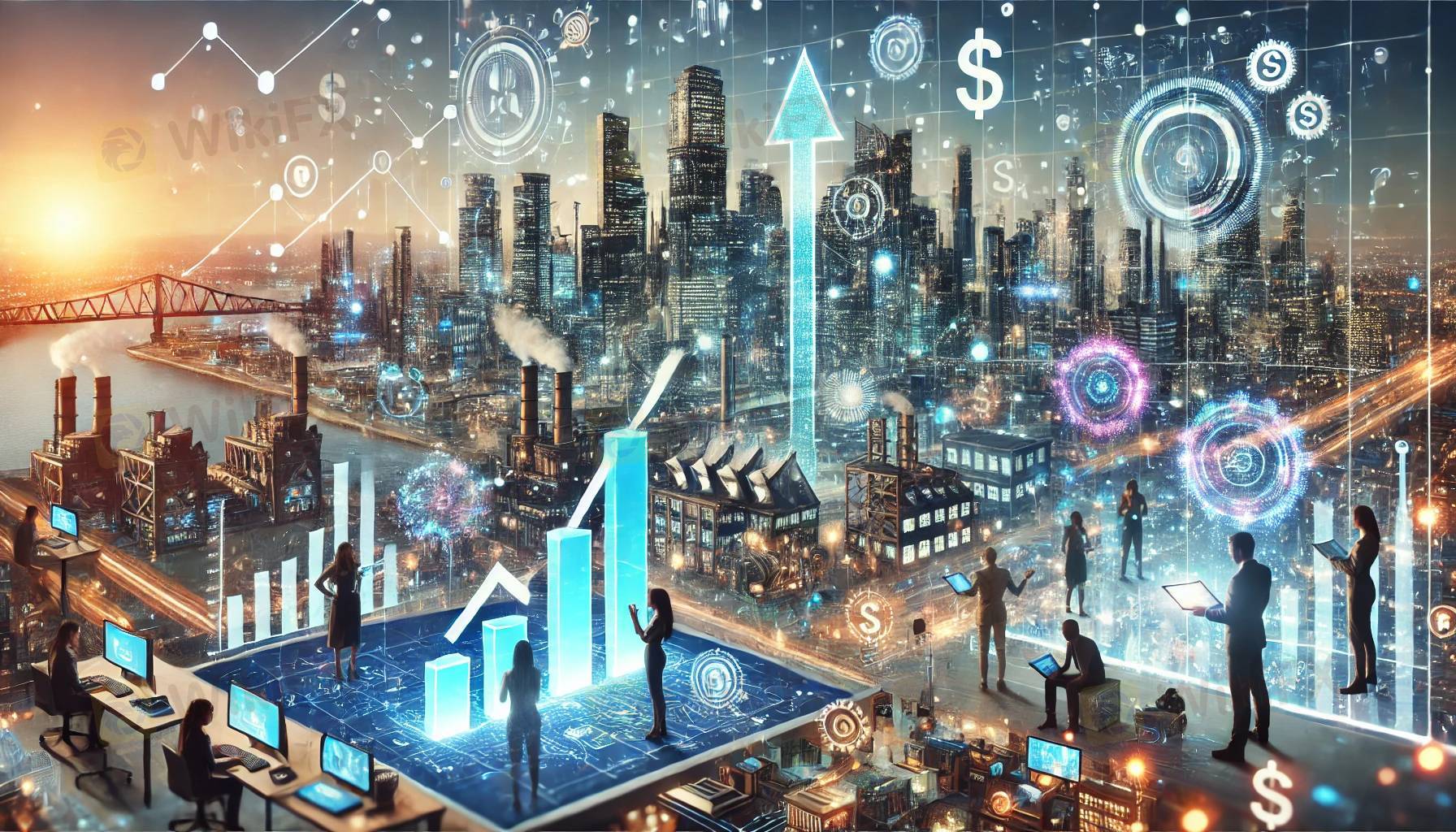
2025-02-07 16:17
IndustryThe Influence of Technology on Economic Growth
#firstdealofthenewyearastylz
Technology plays a pivotal role in driving economic growth, transforming industries, increasing productivity, and enhancing the standard of living. Here’s an analysis of how technology influences economic growth:
1. Increased Productivity
Technology improves the efficiency of production processes by automating repetitive tasks and optimizing resource use.
Advanced machinery, artificial intelligence (AI), and data analytics enable businesses to produce more output with the same or fewer inputs, boosting productivity and GDP.
2. Innovation and New Industries
Technological advancements foster innovation, leading to the development of new industries and markets.
For instance, the rise of the digital economy, renewable energy technologies, and biotechnology has opened new avenues for investment and job creation.
3. Globalization and Trade
Technology facilitates globalization by improving communication, transportation, and logistics.
Businesses can access international markets more easily, leading to increased trade, foreign direct investment (FDI), and economic integration.
4. Job Creation and Transformation
While some jobs are displaced by automation, technology creates new roles in emerging sectors such as IT, e-commerce, and green technology.
Upskilling and reskilling programs help the workforce adapt to changing job requirements.
5. Enhanced Communication
The internet and mobile technologies have revolutionized how businesses and individuals communicate, enabling faster decision-making and collaboration.
This connectivity supports economic activities by improving customer relationships and reducing transaction costs.
6. Education and Skill Development
Technology improves access to education and training through e-learning platforms and digital tools.
A more educated and skilled workforce contributes to innovation and higher productivity.
7. Improved Access to Capital
Financial technologies (FinTech) have expanded access to financial services, enabling small and medium enterprises (SMEs) to grow.
Crowdfunding, digital banking, and blockchain technologies lower barriers to financing and foster entrepreneurship.
8. Efficiency in Public Services
Governments leverage technology to deliver public services more effectively, reduce corruption, and improve infrastructure.
Examples include e-governance, smart cities, and digital health initiatives, which enhance economic efficiency.
Challenges to Consider:
Inequality: Technological growth can widen income disparities, as those with higher skills benefit more.
Displacement of Jobs: Automation can render some jobs obsolete, particularly in traditional manufacturing sectors.
Digital Divide: Limited access to technology in some regions hinders inclusive economic growth.
Environmental Impact: Technological development can strain natural resources and increase e-waste.
In summary, technology is a cornerstone of economic growth, driving innovation, efficiency, and market expansion. However, its benefits must be managed alongside potential challenges to ensure sustainable and inclusive development.
Like 0

Sistmeg
Broker
Hot content
Industry
Event-A comment a day,Keep rewards worthy up to$27
Industry
Nigeria Event Giveaway-Win₦5000 Mobilephone Credit
Industry
Nigeria Event Giveaway-Win ₦2500 MobilePhoneCredit
Industry
South Africa Event-Come&Win 240ZAR Phone Credit
Industry
Nigeria Event-Discuss Forex&Win2500NGN PhoneCredit
Industry
[Nigeria Event]Discuss&win 2500 Naira Phone Credit
Forum category

Platform

Exhibition

Agent

Recruitment

EA

Industry

Market

Index
The Influence of Technology on Economic Growth
 Hong Kong | 2025-02-07 16:17
Hong Kong | 2025-02-07 16:17
#firstdealofthenewyearastylz
Technology plays a pivotal role in driving economic growth, transforming industries, increasing productivity, and enhancing the standard of living. Here’s an analysis of how technology influences economic growth:
1. Increased Productivity
Technology improves the efficiency of production processes by automating repetitive tasks and optimizing resource use.
Advanced machinery, artificial intelligence (AI), and data analytics enable businesses to produce more output with the same or fewer inputs, boosting productivity and GDP.
2. Innovation and New Industries
Technological advancements foster innovation, leading to the development of new industries and markets.
For instance, the rise of the digital economy, renewable energy technologies, and biotechnology has opened new avenues for investment and job creation.
3. Globalization and Trade
Technology facilitates globalization by improving communication, transportation, and logistics.
Businesses can access international markets more easily, leading to increased trade, foreign direct investment (FDI), and economic integration.
4. Job Creation and Transformation
While some jobs are displaced by automation, technology creates new roles in emerging sectors such as IT, e-commerce, and green technology.
Upskilling and reskilling programs help the workforce adapt to changing job requirements.
5. Enhanced Communication
The internet and mobile technologies have revolutionized how businesses and individuals communicate, enabling faster decision-making and collaboration.
This connectivity supports economic activities by improving customer relationships and reducing transaction costs.
6. Education and Skill Development
Technology improves access to education and training through e-learning platforms and digital tools.
A more educated and skilled workforce contributes to innovation and higher productivity.
7. Improved Access to Capital
Financial technologies (FinTech) have expanded access to financial services, enabling small and medium enterprises (SMEs) to grow.
Crowdfunding, digital banking, and blockchain technologies lower barriers to financing and foster entrepreneurship.
8. Efficiency in Public Services
Governments leverage technology to deliver public services more effectively, reduce corruption, and improve infrastructure.
Examples include e-governance, smart cities, and digital health initiatives, which enhance economic efficiency.
Challenges to Consider:
Inequality: Technological growth can widen income disparities, as those with higher skills benefit more.
Displacement of Jobs: Automation can render some jobs obsolete, particularly in traditional manufacturing sectors.
Digital Divide: Limited access to technology in some regions hinders inclusive economic growth.
Environmental Impact: Technological development can strain natural resources and increase e-waste.
In summary, technology is a cornerstone of economic growth, driving innovation, efficiency, and market expansion. However, its benefits must be managed alongside potential challenges to ensure sustainable and inclusive development.
Like 0
I want to comment, too
Submit
0Comments

There is no comment yet. Make the first one.

Submit
There is no comment yet. Make the first one.